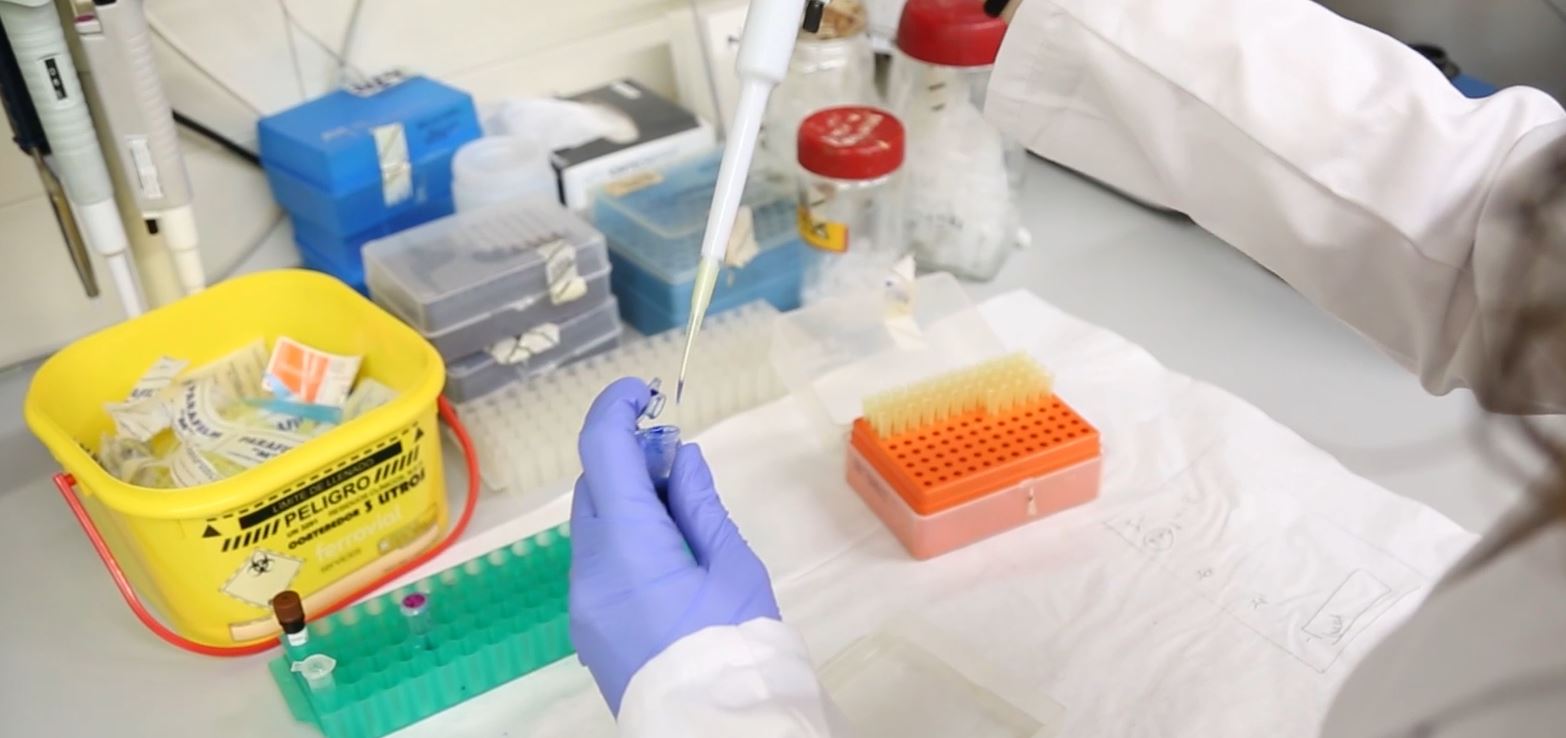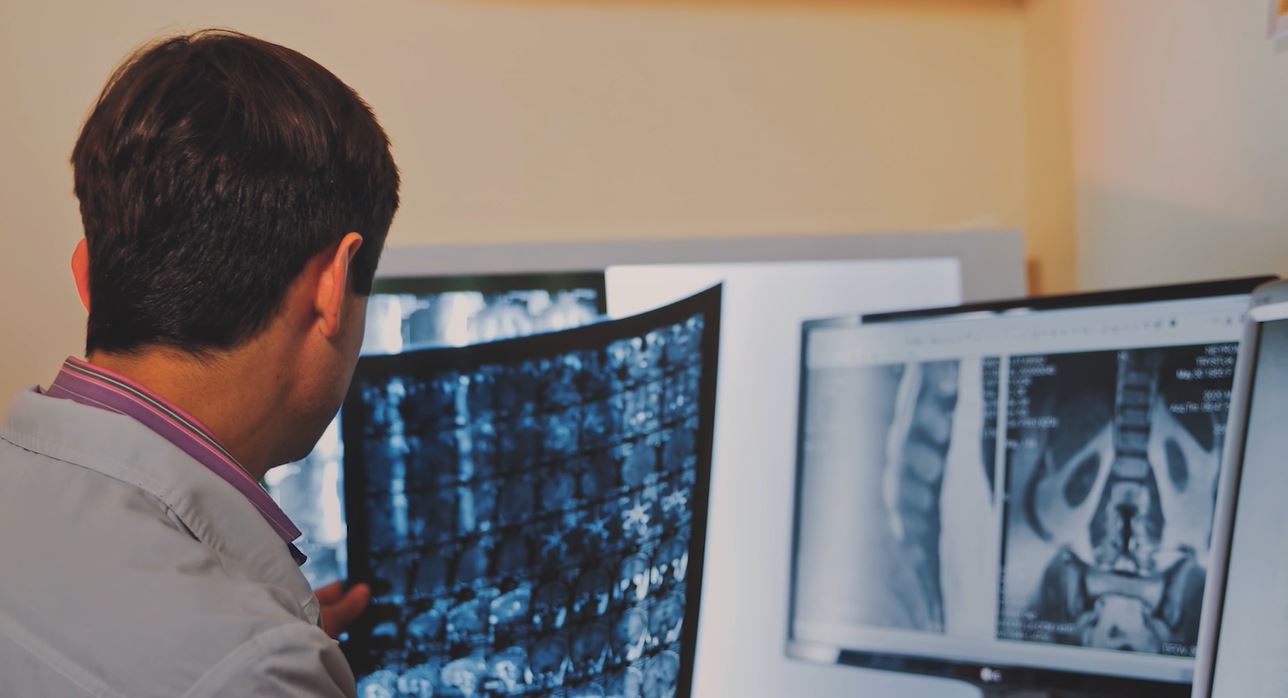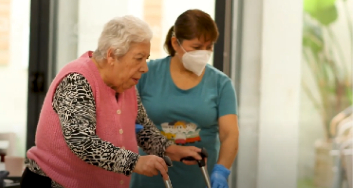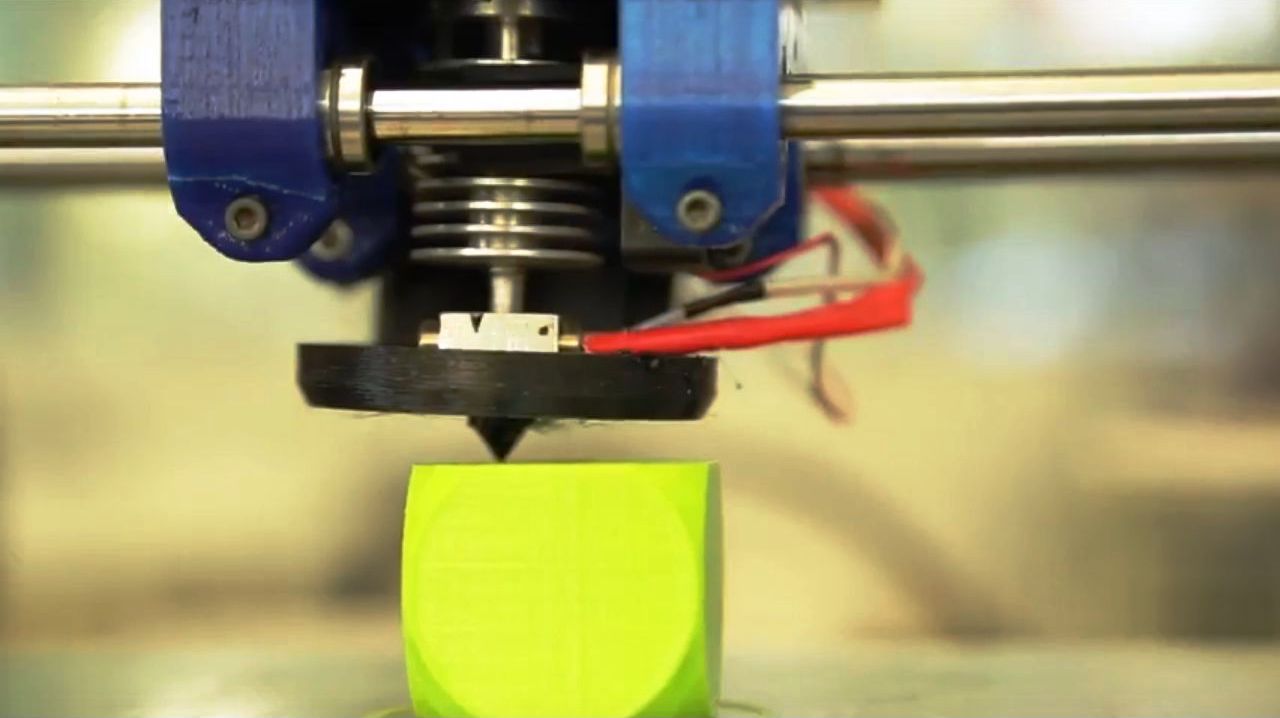We use our own and third-party cookies to improve your browsing experience and to offer you content and services of interest.
Continued browsing on your part shall imply full acceptance of our cookies policy.
Your consent preferences
The following panel allows you to customize your consent preferences for any tracking technology used to help us achieve the features and activities described below. For more information on how these trackers help us and how they work, please see the cookie policy. You can review and change your choices at any time.
We use our own and third-party cookies to improve your browsing experience and to offer you content and services of interest.
Continued browsing on your part shall imply full acceptance of our cookies policy.

Forensic pathologist
Description
A forensic pathologist performs the usual care activities of legal and forensic medicine services. They are tenured civil servants and constitute a higher qualified body reporting to the Justice Administration. They are assigned to an Institute of Legal Medicine or the National Institute of Toxicology and Forensic Sciences. Exceptionally, and when the needs of the service so require such as in the event of attacks, accidents or epidemics with many victims, they may be assigned to courts, public prosecutors and civil registry offices.
The Institutes of Legal Medicine are located in provincial capitals which have a High Court of Justice and in those which have Chambers of High Courts of Justice with jurisdiction in one or more provinces.
Tasks
- Determine the causes and circumstances of death in cases of violent death or where crime is suspected by means of a judicial autopsy (which includes examination of the scene during the legally sanctioned removal of the corpse and also internal and external examination of the corpse) for recent and also old deaths, in the latter case by studying bodily remains and/or bones.
- Perform legal medicine research at the scene of the accident or other events in order to find evidence that adds to the autopsy report.
- Carry out regular inspections of the injured and evaluate personal injury where this is the subject of court proceedings. That is to say, they deal with people who have suffered an attack or accident as well as corpses.
- Produce expert reports and legal medical opinions and attend trials and other judicial proceedings mostly related to the various aspects of their speciality.
- Provide technical assistance to the courts, public prosecutors and civil registry offices in aspects of their professional discipline, including forensic pathology and thanatology practice as well as care or medical supervision of detainees, the injured or sick who are under their jurisdiction.
- Take part in scientific activities including clinical sessions and seminars, research projects, attending and presenting papers at speciality conferences, publication of speciality papers, taking part in continuous learning programmes, etc.
Training
Regulated training and graduates
In addition to a degree, a forensic pathologist also has to pass a competitive public examination held by the Ministry of Health, Social Policy and Equality. Once they have passed this, they get a place as a Resident Medical Intern to do the Legal and Forensic Medicine speciality, which takes 3 years.
The especialized formation is:
- Grau: Medicina
Complementary training
They have to do specialised courses in forensic psychiatry and sexology, medical management and practice, thanatology, etc. depending on where they work.Other specific skills
It is recommended that a forensic pathologist should have a high level of English as the scientific information and research articles they need to consult or write are usually published in this language.
They also have to be an advanced user of office programs, email and Internet browsing since alongside medical tools they will also regularly use ICT to handle data.
More occupations with this training | Look for more information on the degree of interest
Experience
A lot of practical training is done as part of the residence (RMI), so people who complete an RMI are already prepared to exercise their profession.
However, in order to be a government forensic pathologist candidates have to pass a competitive public examination set by the Ministry of Justice, followed by a theoretical and practical adaptation course lasting a few months. Once this has been completed they become a civil service forensic pathologist.
Soft skills
Gain insight into soft skills | Access the dictionary of soft skills
Interests
Scientific research
Individuals who have an affinity for the field of scientific research focus their interest on activities that study different types of organisms and substances in order to obtain valuable products for human beings. A key part of performing this task is the planning and verification of scientific hypotheses through the use of different research designs and techniques. The objective of these searches is the development of new medicines and medical techniques, technological innovation based on the manipulation of cells, molecules and biological agents, as well as the study of cultures in order to improve the characteristics and properties of plants and food.
More occupations with your interests | Get to know your professional interests | Glossary of interests
Related occupations
Wage earner
Work hours
Working days are 8 hours per day 5 days a week, although they will also do duty shifts since accidents where their presence is required may take place at any time. Hence they often work on Saturdays and/or Sundays.Salary
Junior: between 24.446 and 39.155 euros annum gross. Median: 30.938 euros annum gross.
Senior: between 46.214 and 62.738 euros annum gross. Median: 53.846 euros annum gross.
Source: Report "Observatory of Jobs and Salaries of the Labour Market. Barcelona Activa", elaborated by ICSA Grupo. April 2015.
Professional category
Technician
Highlights
Life and health sciences
The main aim of the life and health sciences is to promote the health of living beings. As part of this mission, the industry brings together different fields ranging from healthcare to the pharmaceutical industry. Technology and innovation play an important role in facilitating progress towards a better quality of life. Healthcare is responsible for the medical and clinical care received by people to overcome illnesses or to guarantee their autonomy and quality of life. Animal health is also included under this bracket. Pharmaceutical production, prolific in Catalonia, occupies a central position in this industry, spanning the research, development and distribution phases. Biomedical research also plays an important role in life and health sciences, encompassing technical and research activities that expand and improve medical knowledge and practice. Finally, the industry also provides auxiliary and support services related to health, including diagnosis support services and the incorporation of new medical technologies.
Healthcare
01-2006 |  | Catalan | Beginner
| Catalan | Beginner
Documents (4 of 4)
Sector overview: Life and health sciencies
04-2024 |  | Catalan | Advanced
| Catalan | Advanced
This document shows data to have more information about the sector that will help you in your decisions regarding your training-work itinerary. This data is grouped into the following
Author: Barcelona Activa
Publishing date: 04-2024
Sector Report: Life and health sciencies
12-2023 |  | English | Beginner
| English | Beginner
Sectoral report showing the keys to this economic area as well as the main trends, both consolidated and emerging, in activities and professional profiles and reveals future scenarios.
Author: Barcelona Activa
Publishing date: 12-2023
Focus sectorial: Mental health
08-2023 |  | English | Advanced
| English | Advanced
Report focusing on mental health inside sociosanitary care area and its impact on jobs. It also tells us how new technologies can improve people's treatments and quality of life.
Author: Barcelona Activa
Publishing date: 08-2023
Compendium of resources for job search in the Life Sciences and Health sector
10-2022 |  | English | Beginner
| English | Beginner
Do you know where to find the offers that may interest you according to the sector in which you are looking for work? We put at your disposal the
Author: Barcelona Activa
Publishing date: 10-2022
Related Videos (5 of 5)

Sectorial testimony: Lluís Torrens
Lluís Torrens, director of Innovació Social of the Ajuntament de Barcelona, talks about how the care sector evolves towards residential care services at home and how profiles will have to be hybrid: social and sanitary at the same time. It also describes the skills needed for these profiles and what the future of the sector will be.

Sectorial testimony: Joan Comella
Joan Comella, scientific director of the Vall d'Hebron campus, tells us what profiles are dedicated to research, development and innovation in health and also what skills and knowledge the professionals involved should have.

Sectorial testimony:Fenin
Javier Selva, technical advisor and Carles Sisternas, head of office both in Fenin Catalunya, talk about the future of medical technologies and the professional profiles involved, we also describe the new technologies applied to telemedicine and the most demanded competences in this area.

Video: Care Work for dependent elderly people
Video where you will find information about Care Work for dependent elderly people. You will learn about the services that perform this care, related occupations and future trends in this employment-generating sector.

Jornada sectorial: Fabricació Digital i Impressió 3D
Vídeo on trobaràs un resum dels conceptes clau que van debatre els i les professionals i empreses participants a la jornada sectorial sobre l'impacte i potencial de la Fabricació Digital i la Impressió 3D en el futur de l'ocupació.
Useful links (5 of 14)
Life Sciencies and healtcare Infographic: Evolution and tech change
23-04-2024 |  | English | Beginner
| English | Beginner
Life and health sciences sector has gone through different transformational processes and milestones in recent decades, which have impacted professionals and asked them for new skills and knowledge. Let
Author: Barcelona Activa
Date of issue: 18-04-2024
https://treball.barcelonactiva.cat/infografies/en/timeline/life-sciences-and-healthcare.html
Life and health sciences sector Infographic: sector's ecosystem
23-03-2023 |  | English | Beginner
| English | Beginner
Formative centres, reference clusters, guilds, colleges, city projects... All of this and much more in this infographic that will allow you to gain a thorough knowledge of the ecosystem
Author: Barcelona Activa
https://treball.barcelonactiva.cat/infografies/en/ecosistema/life-sciences-and-healthcare.html
Life and health sciences Sector Infographic: From Training to occupation
18-01-2023 |  | English | Beginner
| English | Beginner
In this infographic you will be able to consult which of the formations will allow you to access the Life and health sciences sector, some of the most outstanding
Author: Barcelona Activa
Date of issue: 05-12-2022
https://treball.barcelonactiva.cat/infografies/en/sector/life-sciences-and-healthcare.html
Consalud.es
22-06-2021 |  | Spanish | Beginner
| Spanish | Beginner
Portal d'ocupació especialitzat en salut amb ofertes específiques del sector de la Salut i Ciències de la Vida. Aquest portal és una iniciativa de la Federació d'Empreses de Tecnologia
Date of issue: 22-06-2021
Indicadors laborals del Treball de Cures en gent gran depenent
27-04-2021 |  | Catalan | Beginner
| Catalan | Beginner
Practical infographic with the most relevant data on Care Work in elderly dependent people, in the metropolitan area of Barcelona, 2019. Elaborated by the Departament d'Estudis de la Gerència
Date of issue: 25-04-2021
https://infogram.com/treballs-de-cures-persones-grans-2019resilient-1hnp27mmenqly2g?live
Display Industry's jobs:
Life and health sciences
Healthcare
- Specialized care
- Nursing care
- Health research and management
- Medicine
- Animal health
- Diagnostic services
- Care Work
Biotechnology
- Diagnostic therapies and equipment production
- Biotechnological suppliers and distributors
- R&D Services
- Health research documentalist
- Biomaterials researcher
- Artificial skin operator
- Genetic counsellor
- Systems biology specialist
- European biotechnology partnership manager
- Biotechnology project manager
- Industrial property manager, specialised in biotechnology
- Bioinformaticien
- Animal Research Facility Technician
- Microscopy technician
Pharmaceutical Industry
- Drug development
- Drug development technician.
- Pharmaceutical chemist
- Galenic development manager
- Chemical library manager
- Toxicologist
- In-vitro testing technician
- Pharmaceutical laboratory technician
- Expert in computer simulation testing
- Tècnic/a d'assajos in vivo
- Clinical trial assistant
- Clinical trial coordinator
- Medical writer
- Clinical trial monitor
- Person responsible for pharmacovigilance
- Personalised pharmacogenetics specialist
- Peptide and oligonucleotide synthesis specialist
- Pharmaceutical and related products handler
- Pharmaceutical Production Technician
- Chemical synthesis and scaling specialist
- Chromatography techniques specialist
- Computational chemistry technician
- Chemical synthesis specialist
- Pharmaceutical suppliers and distributors










 Open
Open


